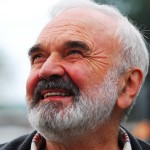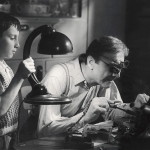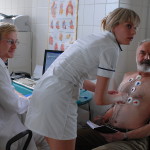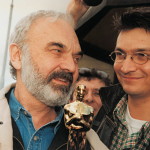The Czech cultural icon Zdeněk Svěrák, one of the most popular personalities of this country, had his 80th birthday. The celebrations also spread to other parts of the world, in arthouse cinema in various countries: from England to New Zealand, from Norway to Argentina to the island of Bali in Indonesia
March the 28th proved to be an important day for the Czech Republic. It was the birthday of Zdeněk Svěrák, one of the most relevant and popular personalities of the culture of his country. It came as no surprise that the event was celebrated with a high degree of attention paid to it, but the celebrations even went beyond the national borders.
Screenwriter, playwright, songwriter, and actor. It would be hard to try to sum up the career of Svěrák in a one thousand-word article. One could call him a bohemian Woody Allen, and yet the term would almost be an understatement. His biography, in some way could resemble the life of a fictional character, not too far from one of his most famous creations, Jára Cimrman, a Czechoslovak hero and genius unjustly ignored by the rest of the world.
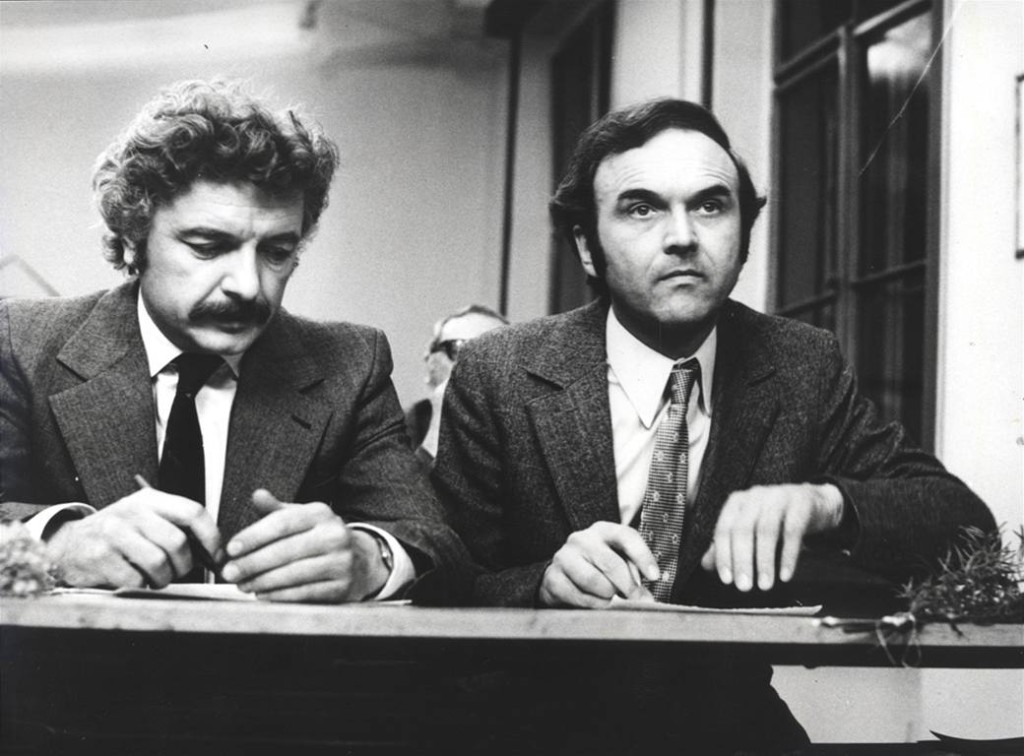 The artist was born in Prague on March 28, 1936 in the family of František Svěrák, an employee of a Bohdalec electric power plant, on the hill that covers the city districts of Vršovice and Michle.
The artist was born in Prague on March 28, 1936 in the family of František Svěrák, an employee of a Bohdalec electric power plant, on the hill that covers the city districts of Vršovice and Michle.
He grew up in a family where education and culture were two fundamental aspects, with a father proud of earning enough, being both locksmith and electrician, for his wife Růžena to be able to stay at home to take care of their children’s education. The young Zdeněk proved to have an innate passion for the arts, learning to play various musical instruments, the harmonica, violin and the piano. Soon however, he discovered his true love: literature, with a special interest in the works of Karel Čapek and Jan Neruda. It is said that he liked to read stories aloud to his family, perhaps an early sign of desire to perform in front of an audience.
Undoubtedly, one of the sources of inspiration for the development of Svěrák’s personality and his unique brand of humour, was the schoolroom, where for a short time his path crossed that of Jiří Menzel, a director with whom he would work on several occasions, and where he began to write stories that entertained his classmates and discovered his talent as a writer. His school experiences later become the basis for one of his most successful works as a screenwriter, the 1975 comedy “Marečku, podejte mi pero!” However, his experience in the classroom was not limited solely to the role of a student. After graduating from the Faculty of Education, majoring in Czech language and literature, he began teaching alongside his wife Božena in the town of Žatec, in the region of Ústí nad Labem. It was also here where he became a father, giving birth to his first child, the future filmmaker Jan. However, despite his teaching commitment, the Bohemian didn’t want to abandon his passion for writing; when he had time he wrote articles for magazines, short stories, fables and scripts for television. From 1962 he was part of the Czechoslovak Army Radio, where together with his colleague Jiří Šebánek and jazzman Karel Velebný he created a series of fake “live links” with the imaginary Spider’s Tavern (Vinárna U Pavouka). It was precisely in this transmission where the character of Jára Cimrman was born, to which Svěrák and his colleagues would dedicate a theatre and countless performances in the following years.
The late sixties proved to be a turning point in his career, with his acting debut in the film world as a lawyer in the film Zločin v šantánu (1968) directed by his friend Jiří Menzel, who would also give him a part in his next film, the subsequently censored, Skřivánci na niti (Larks on a String: 1969). The latter, almost an ode of anti-conformism, was shot during the Prague Spring, which ended after the Soviet invasion, and banned until 1989. In the same period, following the invasion of Czechoslovakia by Warsaw Pact troops, Svěrák left the Communist Party after having been a member for about eight years. Despite this, his career was not affected in any way, as a matter of fact he began to thrive and the outstanding comic talent of the former teacher was expressed in a variety of supporting roles in numerous Czechoslovak comedies, many of which he also collaborated on as a screenwriter.
At this point we should mention the collaborations with his friend Ladislav Smoljak, the former editor of the publishing house Mladá fronta, with whom (and together with Jiří Šebánek) he founded the theatre “Divadlo Jary Cimrmana”. The Czechoslovak cinema of the 70s stood out thanks to the series of hit comedies written four-handed by the Svěrák-Smoljak duo: Jáchyme, hoď ho do stroje! (1974), and Marečku, podejte mi pero! (1975), directed by Oldřich Lipský; Samotě u lesa (1975) directed by Jiří Menzel; Kulový blesk (1978) directed by Zdeněk Podskalský and by Smoljak himself. The success continued into the next decade with three films inspired by the Theatre of Cimrmann: Jára Cimrman ležící, spící (1983), Rozpuštěný a vypuštěný (1984), and Nejistá sezóna (1987), all directed by Smoljak. Svěrák however, managed to obtain the same level of popularity even without his faithful collaborator, writing classics of Czech comedy like Ať žijí duchové! (1977), and Tři veteráni (1983), both directed by Oldřich Lipský; and Vrchní, prchni (1980), filmed by Smoljak.
The screenwriter, slowly began to gain international fame in the mid-80s with “My Sweet Little Village” (1985), also directed by Menzel and nominated for an Oscar in the best foreign language film category, as was the case for the comedy “Elementary School” (Obecná škola), directed by his son Jan in 1991. It was precisely the latter film which was chosen to represent and celebrate the eightieth birthday of the cultural icon, with screenings of a new restored version in 80 cinemas worldwide. To tell the truth, the biggest international success of the Svěrák father and son duo remains Kolya (1996), directed by Jan and written by Zdeněk (who also plays the lead actor), which this time won the Oscar for the best foreign film.
Obecná škola however, was the first creative collaboration of Svěrák family team, and perhaps it was chosen as a symbolic film of the artist. Once again, the story takes place in a school environment. What stands out is the remarkable way in which the atmosphere of the school in a small Czechoslovakian village is portrayed in the post-World War II period, with Zdeněk again among the protagonists. But if the decision to celebrate the event was quite obvious and expected in his homeland, it is a pleasure to see that the celebrations also extended to other parts of the globe, in selected cinemas in different countries ranging from England to New Zealand, from Norway to Argentina or the island of Bali in Indonesia. Among the most important ones, we emphasize the two screenings at London’s Notting Hill Gate Picturehouse and the event organized by the Czechoslovak Society of Arts & Sciences in Los Angeles, where before the screening Zdeněk má narozeniny was sang, written by Zdeněk’s friend, the musician Jaroslav Uhlíř, who had written the famous songs for movies Vrchní, prchni, Vratné lahve (2006) and Tři Bratři (2014). An appropriate tribute for a national treasure, the author of an original and distinctive form of comedy, as recognizable as the work of Woody Allen or Billy Wilder, capable even of shaping the culture and the very image of his nation.
by Lawrence Formisano





